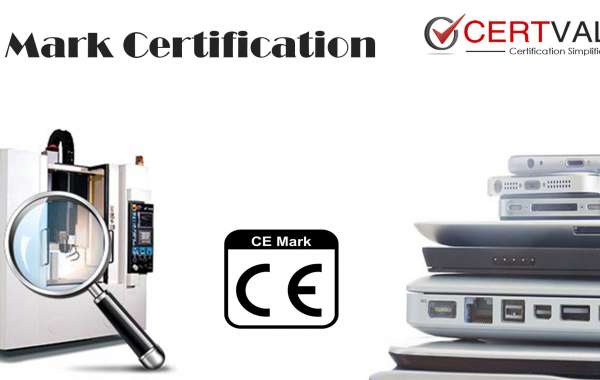In an age where digital presence is paramount, ensuring your dental practice is visible online can make or break your business. Search Engine Optimization (SEO) is a critical tool to enhance your online visibility, attract new patients, and grow your practice. At Digimax Dental, we specialize in providing top-notch SEO services tailored specifically for dental practices. This ultimate guide will walk you through the essential strategies to boost your practice’s online visibility and maximize your reach.
Why Dental SEO Matters
SEO is the process of optimizing your website to rank higher on search engine results pages (SERPs). For dental practices, this translates to increased visibility, more patient inquiries, and ultimately, more appointments. Here’s why SEO is indispensable for your dental practice:
- Increased Visibility: Ranking high on SERPs ensures your practice is seen by potential patients searching for dental services online.
- Enhanced Credibility: Websites that appear on the first page of search results are often perceived as more credible and trustworthy.
- Cost-Effective Marketing: Unlike paid advertising, SEO is a long-term investment that continues to drive traffic without ongoing costs.
Key SEO Strategies for Dental Practices
1. Comprehensive Keyword Research
Keyword research is the cornerstone of any successful SEO campaign. Identifying the right keywords ensures your content reaches the right audience.
- Primary Keywords: Start with broad keywords related to dental services such as "dental marketing," "dental SEO company," and "dental marketing UK."
- Long-Tail Keywords: These are more specific phrases like "best dental website design" and "dental practice website design." They typically have lower search volumes but higher conversion rates.
- Local Keywords: Since dental practices are location-based, including local keywords like "family dentist in [city]" is crucial.
2. Optimized Content Creation
Creating high-quality, informative content is vital for engaging your audience and improving your SEO rankings.
- Blog Posts: Write blog posts on relevant topics such as dental hygiene tips, the importance of regular check-ups, and dental procedure explanations. Incorporate keywords like "dental marketing expert" and "dental SEO experts" to attract a wider audience.
- Videos: Video content is highly engaging and can significantly enhance user experience. Create educational videos like "tooth implant video" and "animated dental videos" to explain procedures and provide oral health tips.
3. On-Page SEO
On-page SEO involves optimizing individual web pages to rank higher and earn more relevant traffic.
- Title Tags and Meta Descriptions: Ensure each page has a unique, keyword-rich title tag and meta description that accurately describes the content.
- Header Tags (H1, H2, H3): Use header tags to structure your content, making it easy for both search engines and users to understand.
- Image Alt Text: Use descriptive alt text for images to improve accessibility and help search engines understand the content of your images.
- Internal Linking: Link to other relevant pages on your website to keep users engaged and help search engines crawl your site more effectively.
4. Local SEO Optimization
Local SEO is crucial for dental practices as most patients search for nearby services.
- Google My Business (GMB): Claim and optimize your GMB listing. Ensure your name, address, and phone number (NAP) are consistent across all online platforms.
- Local Citations: Get listed in local directories and ensure your NAP information is accurate.
- Customer Reviews: Encourage satisfied patients to leave positive reviews on Google and other review sites. Respond to reviews to show that you value patient feedback.
5. Technical SEO
Technical SEO involves optimizing the technical aspects of your website to improve its performance and ensure search engines can crawl and index your site effectively.
- Mobile-Friendliness: Ensure your website is responsive and provides a good user experience on mobile devices.
- Site Speed: Optimize your website’s loading speed. A fast website improves user experience and can positively impact your rankings.
- Secure Website (HTTPS): Ensure your website is secure by using HTTPS. This protects user data and is a ranking factor for Google.
- XML Sitemap: Create and submit an XML sitemap to help search engines understand your site structure and index your pages.
6. User Experience (UX)
A positive user experience can lead to higher patient satisfaction and improved SEO rankings.
- Easy Navigation: Ensure your website is easy to navigate with a clear structure. Include a search bar and well-organized menu.
- Engaging Design: Invest in the best dental website design practices to create an aesthetically pleasing and professional website. Consider hiring dental website design companies to help with this.
- Content Accessibility: Make sure your content is accessible to all users, including those with disabilities. Use descriptive alt text for images and provide transcripts for videos.
7. Link Building
Building high-quality backlinks from reputable websites can significantly boost your search engine rankings.
- Guest Blogging: Write guest posts for reputable dental and health blogs. Include a link back to your website.
- Partnerships: Partner with local businesses and organizations to get featured on their websites.
- Press Releases: Issue press releases for significant events, such as the opening of a new clinic or the introduction of new services.
8. Social Media Integration
Social media can amplify your SEO efforts by driving traffic to your website and increasing your online visibility.
- Social Media Profiles: Maintain active profiles on popular social media platforms like Facebook, Instagram, and LinkedIn.
- Share Content: Regularly share your blog posts, videos, and other content on social media to engage with your audience and attract more visitors to your site.
- Engagement: Interact with your followers by responding to comments, answering questions, and participating in discussions.
Measuring Your SEO Success
To ensure your SEO efforts are effective, it’s important to track and measure your success. Here are some key metrics to monitor:
- Organic Traffic: Monitor the number of visitors coming to your website from search engines.
- Keyword Rankings: Track the rankings of your target keywords over time.
- Conversion Rate: Measure the percentage of visitors who take a desired action, such as booking an appointment or filling out a contact form.
- Bounce Rate: Track the percentage of visitors who leave your website after viewing only one page.
- Backlinks: Monitor the number and quality of backlinks pointing to your website.
Conclusion
Implementing effective SEO strategies can significantly boost your dental practice’s online presence, attract more patients, and ultimately grow your business. At Digimax Dental, we specialize in providing tailored SEO solutions for dental websites. By focusing on comprehensive keyword research, high-quality content creation, local SEO, technical SEO, user experience, link building, and social media integration, we help dental practices achieve higher search engine rankings and drive more organic traffic.
If you're ready to take your dental practice to the next level with SEO, contact Digimax Dental today. Our team of dental SEO experts is here to help you maximize your reach and achieve your online marketing goals. Whether you need assistance with dental marketing, dental practice website design, or creating engaging content like tooth implant videos and animated dental videos, we have the expertise to help your practice thrive in 2024 and beyond.








